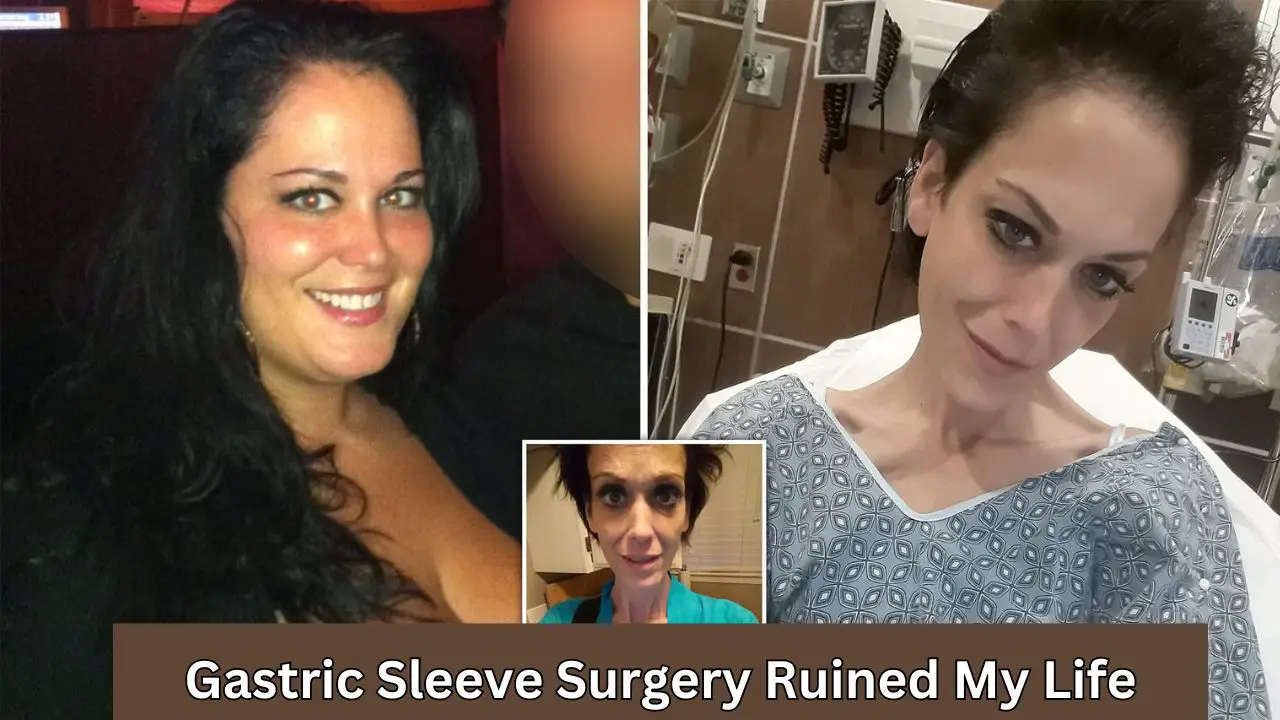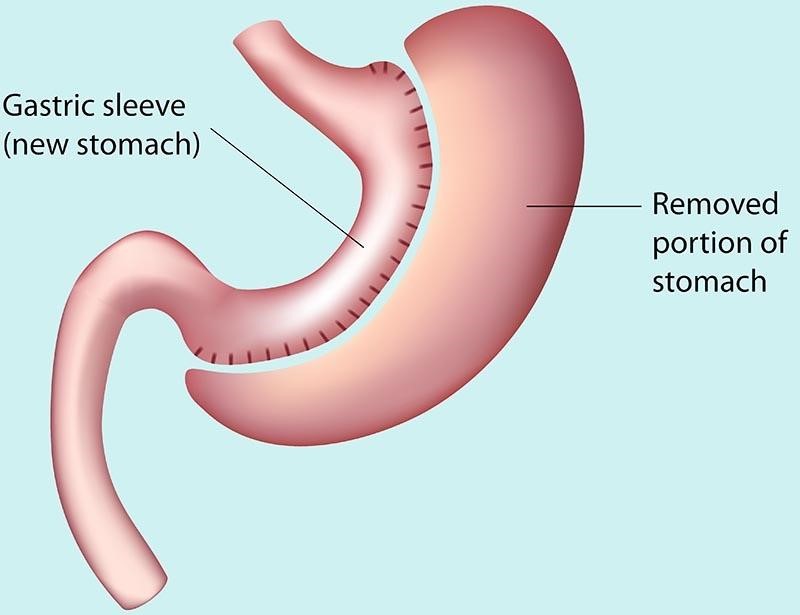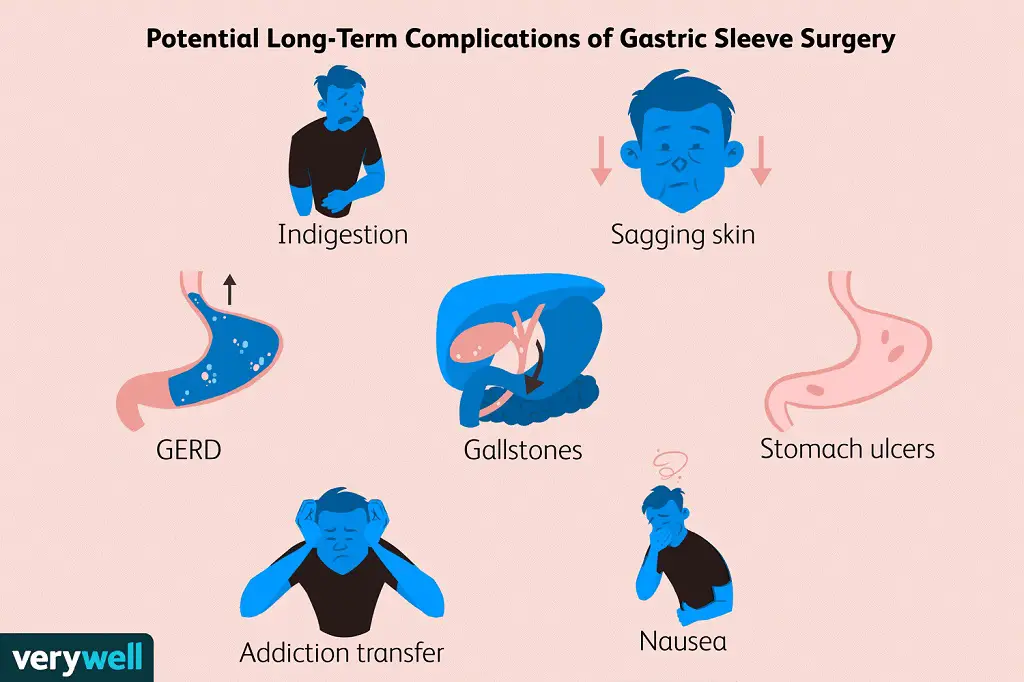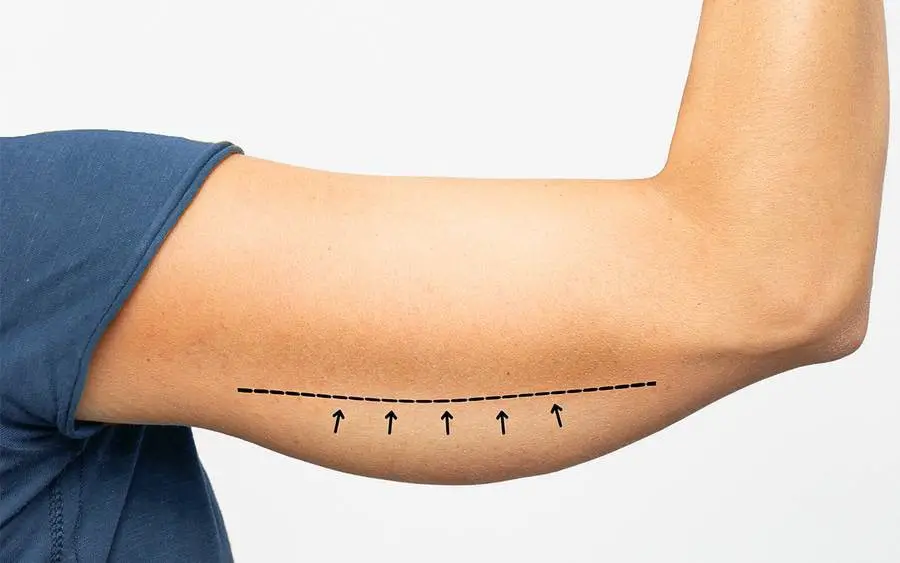Gastric Sleeve Surgery Ruined My Life: Not Less Than A Horror Story

Undoubtedly, gastric sleeve surgery is alluring to someone who fails after making so many attempts to lose weight. But is it really as simple as it sounds? You’ll be left speechless after hearing how gastric sleeve surgery ruined my life.
After so many unsuccessful attempts at weight loss, I thought the surgery would be more effective. A few years ago I underwent gastric sleeve surgery to abolish severe obesity and improve health conditions. But the struggle I started to experience I will never forget. I failed to get adequate nutrients which led to hair loss, saggy skin, and brittle teeth. I was not enjoying the food even though it was hard for me to take an ice cube. I lose weight as well as my happiness and gain uncountable pain except for weight.
In this article, I will show you the dark side of the surgery and its side effects. Also, I will try to show you how to overcome the mistake, though the surgery is permanent. Stay tuned with me.
Gastric Sleeve Surgery: My Horrible Experiences
As this surgery involves the removal of about 80% of the stomach, It’s a quick solution to lose weight. I was thrilled when I decided to do the surgery. But I started to face numerous numbers of problems after the surgery.
Primarily, I want to enjoy eating so badly, but my stomach doesn’t allow it. I had to eat less food and absorb fewer nutrients, which stresses the body as it adapts to fast hormonal changes. Gradually, I avoided eating my favorite foods like red meat, rice, pasta, and other snacks.
I started to lose my shiny, thick hair already due to a lack of nutrition. I can remember that within two months, my scalp became visible due to massive hair loss. I learned later that hair loss is temporary and will grow back. But at that moment, it was too frustrating for me.
Heartburn and other symptoms of gastroesophageal reflux disease (GERD) showed up within a year after the surgery.
When you gain excess weight, obviously your skin stretches. This is why, after weight loss surgery, my skin became saggy. It shows up within months after the procedure.
Now, the most frustrating part is my teeth were broken. I had to go through extreme pain because of tooth decay. Moreover, the decay causes tooth pulp to be exposed. I did surgical extractions and root canals. I had to spend a huge amount of money to recover my teeth. And the pain I experienced was beyond explanation.
Overall, the surgery became a horror story of my life. I had never regretted this much in my entire life before.

Image source: Gastric Sleeve Surgery
The Worst Things About The Gastric Sleeve: Gastric Sleeve Horror Stories from The Sufferer
The worst things about the gastric sleeve are bleeding, nutrient deficiencies, and leakage. Let’s learn the gastric sleeve complication stories from the real-life sufferer.
Bleeding
It is a common thing to ask: Is it normal to bleed after gastric sleeve surgery?
A woman from Richmond states that she experienced bleeding after surgery. She said struggles after gastric sleeve surgery are hilarious. My face turned pale. I always felt dizzy. Suddenly, I noticed that my stool was dark. I was vomiting blood like ground coffee.
Bleeding during surgery is a complication that occurs. According to a study, bleeding after gastric sleeve surgery is reported at an average rate of 2%. However, bleeding can be either intraperitoneal or endoluminal.
Symptoms of bleeding may include tachycardia and significant haemoglobin loss. The bleeding is also considered a symptom of a stomach ulcer after the surgery.
Nutrients deficiencies
Jonathan Smith, a man who suffered severe nutrient deficiencies after the operation, shared his horrible experience. He said, “I lost my appetite. I was unable to enjoy food as happily as before. I felt full after even drinking only one glass of water. I consequently began to experience nutritional deficiencies. This results in bone loss. To get rid of such problems, I have to say goodbye to my favourite dishes for good. Instead of that, I have to intake an adequate amount of fatty fish and fortified food.”
Sleeve gastrectomy is a type of bariatric surgery that leads to long-term nutritional deficiencies. Some of the most common nutritional deficiencies among patients who undergo bariatric surgery include
- vitamin B12,
- folic acid,
- iron,
- Zinc
- calcium
- thiamine
- Vitamin A
- Vitamin D
- Vitamin K
- Albumin
Calcium and vitamin D deficiencies are mainly responsible for deficiency of the parathyroid hormone. Consequently, long-term PTH deficiency causes bone loss. Moreover, zinc, iron and other vitamin deficiencies cause severe hair loss.
Besides, patients with deficiencies in albumin, vitamin D, or calcium have a higher risk of leading to osteoporosis. On the other hand, NIH analysis states that 27% of patients with the surgery experience vitamin B1 (thiamin) deficiency.
Leakage
Leakage is a complication that occurs after surgery. It refers to the leakage of the staple line where the stomach was divided and sealed during the surgery. Unfortunately, leakage leads to infection, abscess formation, and peritonitis sometimes. Running fever after gastric sleeve surgery occurs due to the leakage mostly. If a leakage is suspected, it is crucial to seek immediate medical attention.
A girl, Ruby Corton from Franklin, shares the signs and symptoms of leakage after surgery she faced. She experienced abdominal pain, fever, increased heart rate, difficulty swallowing, and persistent vomiting. She regretted saying that I should focus on exercising and eating healthy food. Despite doing so, I made the worst decision, and I couldn’t fix it any more. I have to live with this mistake forever.
The good news is that the incidence of leakage after gastric sleeve surgery is ranging from 0.5% to 5% which is relatively low. However, leakage depends on the surgeon’s experience, patient characteristics, and surgical technique.

Source: Verywell.com
Who Should Not Go with Gastric Sleeve Surgery?
Gastric sleeve surgery is a safe and effective treatment for obesity and related medical conditions. But there are certain factors that make someone ineligible for the procedure. Here are some general considerations:
- The procedure is ineligible for those who do not have a high risk of gaining weight.
- For those over the age of 65, the procedure is risky.
- Those who are unwilling to change their lifestyle including exercise and a healthy diet.
- A psychological evaluation is necessary to determine whether a patient is ready for surgery. as well as their capacity to handle the associated physical and emotional changes.
- Gastric sleeve surgery is not an option for people who have previously undergone certain medical procedures or conditions.
The Surgery Change The Dynamics of My Relationship: A Story of A Sufferer Who Lost His Loved One
Surprisingly, the divorce rate in the United States is between 40% and 50%. A 2018 study stated that people who had weight loss surgery have higher divorce rates.
A man complained,” The surgery changed the dynamics of my relationship. We shared our dining together; we had so many beautiful memories. After the surgery, I needed to change my lifestyle, which was mismatched with my partner. My partner started to feel insecure, jealous, and resentful. The emotional changes between us gradually changed, and finally, we fell apart.”
Another sufferer, Caroline, said, before surgery, I was chubby, fat yet a happy mother. My children used to hug me. But the scenario had changed completely after the surgery. As I couldn’t eat, I lost interest in exploring new recipes. Most of the time, I feel annoyed cooking for my family. My children want their chubby mommy back and don’t get that comfort hugging me like before. I badly miss those happy moments with my child.
Moreover, the saggy skin! How can I forget to share about that!! The horrible saggy skin is one of the reasons that my husband distanced himself from me. It looked too horrible, and sometimes I got scared seeing my own body. I had to go for another surgery to fix my saggy skin.
While gastric sleeve surgery can bring positive changes to a person’s life, it can also introduce challenges that may negatively impact relationships. The number of such cases is equal.

Preventing Gastric Sleeve Complications: What I Wish I Knew About Gastric Sleeve Surgery
There are considerations to remember that I maintained no rules before and after the surgery. But these will help to prevent complications. If I knew the sufferings, I would be focused on maintaining all these. The things you should maintain are the following.
Before Surgery
Before surgery, you have to do the below things to avoid all the suffering I and others shared.
- Attending a programme for education about bariatric
- Surgery receiving nutritional advice Getting counselling for mental health
- Make a habit of chewing your food for a long time.
- Getting a physical exam, blood tests, and perhaps an X-ray of the stomach done
- Giving up smoking months before surgery, stopping aspirin and other blood thinners
- Try to eat less
- Make a habit to eat at the same time.
After surgery
After surgery, it’s important to maintain a lifestyle. For a maintained lifestyle, you should perform the following things:
- Keep a habit of daily exercise.
- Continue any breathing and coughing exercises. These can help prevent a lung infection and increase circulation.
- Stay hydrated.
- Maintain personal hygiene and physical tasks. For emotional support, join a support group with others who have been through a similar process.
To lower your risk of complications the following things you must abstain from:
- Alcohol
- Smoking
- Sugary and starchy foods
If you can not avoid it, continue these with moderation.
When to See A Healthcare Provider
After surgery, you should schedule some follow-up appointments to check your progress and recovery. However, you should reach out to your doctor immediately if:
- Suffer from fever
- Have difficulty breathing.
- Have chest pain.
- Legs are swollen or red.
- Have difficulty urinating.
- Medications are not working effectively.
If in doubt, it’s always best to reach out to your physician. He will give you a post-surgical plan. Undoubtedly, following the plan reduces the risk of complications.
Frequently Asked Questions (FAQs)
What percentage of people regret having a gastric sleeve?
According to a survey by the National Library of Medicine, among the patients who underwent surgery, 74.3% of patients didn’t feel any negative effects. 83.2% of them gave a positive response. Only 3% were dissatisfied with their decision. Overall, I have only four regrets about having a gastric sleeve.
age limit for gastric sleeve surgery
What to do after gastric sleeve surgery?
After the surgery, make sure to add a minimum of 60 grams of protein to your meals daily. Take the recommended bariatric vitamin supplements daily. Add zinc and biotin to your medicine supplement. Also, use Nioxin shampoo to get rid of hair loss, and consume seafood. Generally speaking, the food menu after weight loss surgery includes a calorie intake of between 1,000 and 1,400, 60 to 80 grams of protein a day, and 35% to 48% carbohydrates a day.
How Many Years Does a Gastric Sleeve Last?
Gastric sleeve is a permanent procedure in your weight loss journey. It lasts for the rest of your life. Most importantly, it can’t be reversed.
How can I get my skin back After gastric sleeve?
If you are too obese before the surgery, you will definitely get extremely saggy skin. Home remedies or free hand exercise will not help you in that case. For a quick and effective result, you are inconsiderate to undergo further surgery. That is panniculectomy. You can remove excess skin through the surgery. Your surgeon will wait until your weight has been stable for one to two years. After that, he will recommend this procedure.
Is there any chance of weight regain?
In the third year after surgery, weight gain usually starts. Those who don’t change their habits gain back the weight they lost previously. Surprisingly, the stomach pouch only holds half a cup of food in the first days after surgery. Over time, the pouch stretches and gets bigger. If you eat larger meals, the pouch will be stretched. Consequently, weight loss will stop. This happens if you ignore post-surgery instructions. Research indicates that around 20% to 35% of people experience a long-term failure rate.
Conclusion
It makes you stop and rethink after learning how the gastric sleeve surgery ruined my life. I experienced the side effects badly; I thought I should share all these. Even though the majority of people report positive results from gastric sleeve surgery up to 10 years after the procedure and beyond, my weight loss journey was not that easy. After learning about the potential side effects of the surgery, the steps listed above will assist you in preventing them. Since I’ve gone through a lot, I don’t want anyone else to suffer. And my own advice is to try every possible weight loss option before considering surgery. Keep gastric sleeve surgery as the very last option on your list of weight loss methods.





